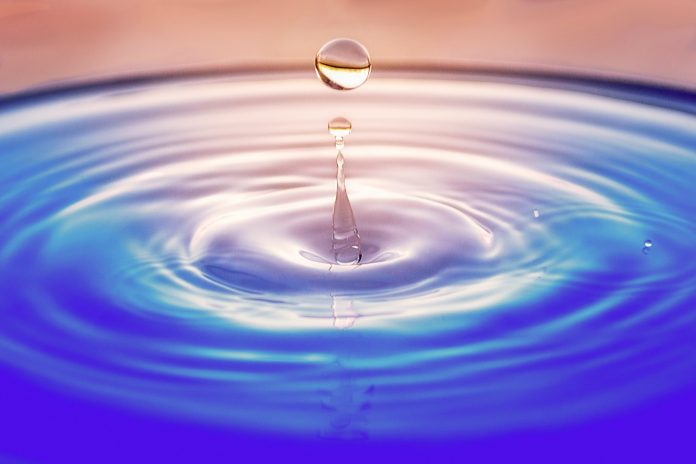As a new or expectant mom, you may wonder, “Does distilled water go bad?” Whether you’re using it for drinking, preparing formula, or even household appliances, you want to ensure the safety and health of your family.
This guide will cover everything you need about distilled water, including its shelf life, proper storage methods, and uses. So grab a cup of your favorite beverage, sit back, and let’s dive in!
Introduction: The Shelf Life of Distilled Water
During the distillation process, which involves boiling water, trapping the steam, and then condensing it back into liquid form, purified water known as distillate is produced. Distillate is also known as distilled water.
Since this procedure filters out contaminants, it is a fantastic option for water that is going to be consumed, particularly by newborns and infants. However, how long does it take for distilled water to lose its freshness? Let’s find out!
Does Distilled Water Go Bad?
Although the water that has been distilled does not “expire,” it can become tainted over time. Unopened and securely bottled water that has been distilled can remain usable for a very long time, often years, before it should be discarded.
After being opened, however, the quality and duration of distilled water shelf life are susceptible to being altered by various circumstances, including how it is stored and its potential exposure to pollutants.
To maintain its quality and ensure it is safe to drink, distilled water that has been opened and used should be used within a few weeks.
Storing Distilled Water for Optimal Quality and Shelf Life
To maintain the purity and safety of your distilled water, it’s essential to store it correctly. Below, we’ve compiled a list of tips to help you keep distilled water for drinking and household use.
Choose the Right Container
When preserving distilled water, picking the correct container is quite essential. Glass bottles are preferable to plastic ones because they do not allow chemicals to seep into the water and have lower permeability.
To reduce the likelihood of food contamination, you should store it in a container made of high-quality plastic approved for food use.
Keep It Cool and Dark
Direct sunlight and heat can promote the growth of green algae and other microorganisms in your water. To avoid this, store your distilled water container in a cool, dark place like a pantry or cupboard.
Seal It Tight
Make sure to tightly seal your distilled water bottle or container to prevent contaminants from entering. This will help keep your distilled water fresh and safe for consumption.
How to Tell If Distilled Water Has Gone Bad
While it’s rare for properly stored distilled water to go bad, it’s essential to be vigilant and know the signs of contaminated distilled water.
Here are some telltale signs:
- Unpleasant odor: If your distilled water smells off or foul, it may have been contaminated by bacteria or other microorganisms.
- Cloudy appearance: If your water looks cloudy or has visible particles floating, this could be a sign of contamination.
- Algae growth: Green algae can grow in water exposed to sunlight, indicating that the water is no longer safe to drink.
If you suspect your distilled water has gone bad, it’s best to be careful and discard it.
Using Distilled Water in Everyday Life
Drinking distilled water is one of the many things you can do with this type of water. Here are some common household uses for distilled water that new moms may find helpful:
Baby Formula
For newborns and infants, using distilled or purified water to prepare baby formula can help ensure your little one receives the purest and safest nutrition possible.
Steam Iron
To prolong the life of your steam iron and avoid mineral buildup, use distilled water instead of tap water. This can help keep your iron working efficiently and your clothes looking crisp and wrinkle-free.
Household Appliances
Distilled water is an excellent option for other household appliances, such as humidifiers, air purifiers, and coffee makers. Using distilled water can help minimize mineral buildup and extend the life of your appliances.
Frequently Asked Questions
To wrap up, let’s tackle some common questions about distilled water.
Can I drink distilled water?
Absolutely! Distilled water is an excellent option for drinking water, as the distillation process removes impurities and contaminants. However, ensure that you properly store your water and remains uncontaminated.
Is it safe to drink expired distilled water?
If stored correctly and unopened, distilled water doesn’t technically expire. However, once opened, you should consume the water within a few weeks to ensure freshness and safety. Don’t drink your water if you suspect it is contaminated.
Can I store distilled water in a plastic container?
Yes, you can store distilled water in plastic containers, but you must use high-quality, food-grade plastic. Glass bottles are a better option, as they don’t leach chemicals into the water and are less permeable.
Conclusion
It is essential for new mothers and women who are expecting to be aware of the length of time that distilled water can be stored and how it should be done.
You can ensure that your distilled water is clean, safe, and ready to use according to the recommendations and tips that we have provided in this detailed guide.
This is true regardless of whether you will use the water for drinking, making baby formula, or operating household appliances.
If you have any worries about the health or safety of your family, you should always follow your gut instincts and talk to a healthcare professional. This applies to any situation that could affect the well-being of your loved ones. Happy hydrating!

